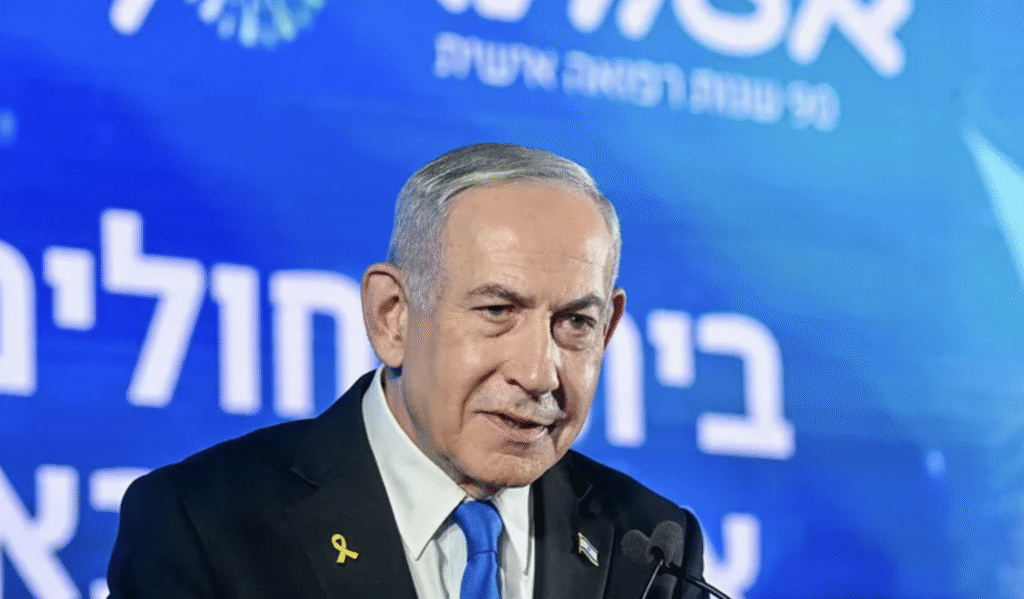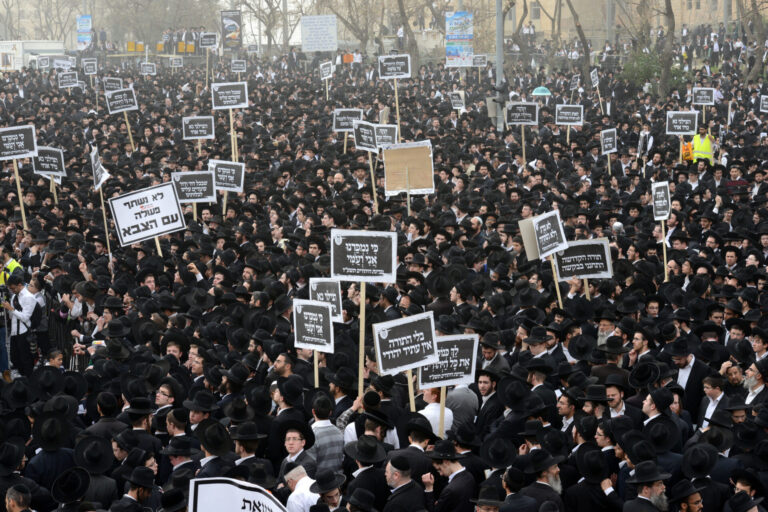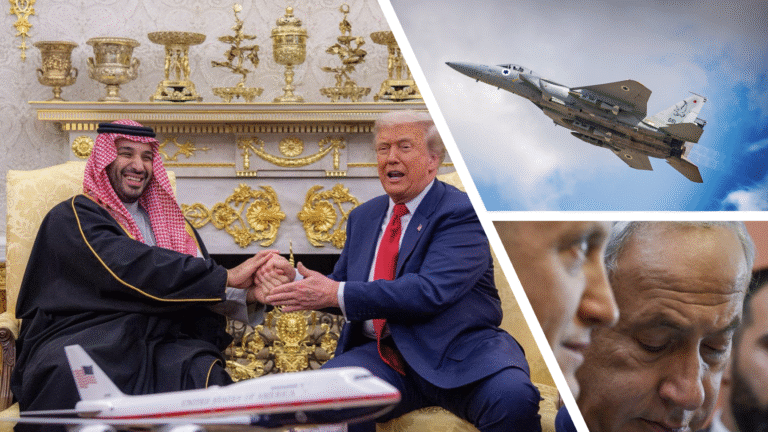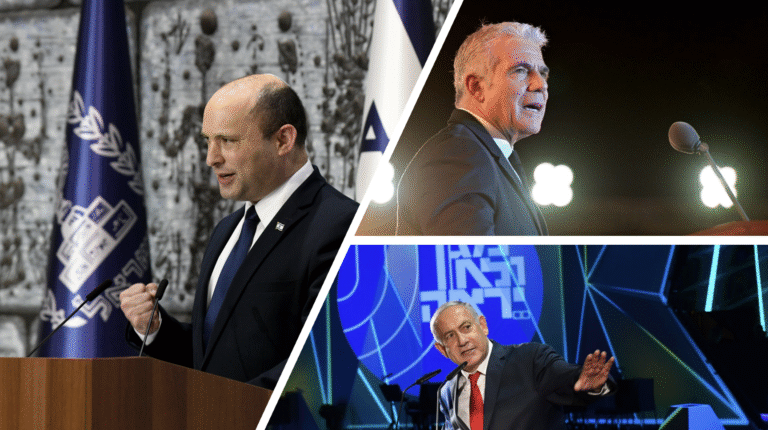One or two nuclear bombs would destroy Israel—the “second Holocaust” Bibi has always feared. And what he has been determined to stop—no matter the cost.
I wrote an essay for The Free Press on how the Iran strikes seal Netanyahu’s legacy. Click here to read the original piece.
***
One quiet evening in Israel, 12 years ago, Benjamin Netanyahu appeared on Eretz Nehederet, Israel’s equivalent of Saturday Night Live. After the laughter subsided, a serious question arose: “How do you think people will remember your premiership?” Netanyahu replied briefly: “As the protector of Israel’s security. ”
This was the legacy Netanyahu desired. It was his competitive advantage over political rivals, securing him six terms stretching back to the previous millennium. And you could argue it is what allowed him to withstand crisis after crisis that would have been ruinous for any other leader; above all, the attacks of October 7, 2023.
The primary threat Netanyahu identified was clear: Iran, the Shiite powerhouse encircling Israel via its proxies, Hamas and Hezbollah, and intent on destroying the Jewish state once and for all via its nuclear ambitions. One way to read the past 30 years in the Middle East is as a duel between Netanyahu and Iranian supreme leader Ali Khamenei—two radically different figures. One, a secular, elite, highly educated leader with impeccable English; the other, a religious zealot from a poor background who doesn’t travel abroad.
Netanyahu’s goal has been to destroy Iran’s nuclear program. Khamenei’s goal has been to destroy Israel, and much of 21st-century Middle Eastern history has revolved around their struggle.
Netanyahu operates with a profound historical awareness of the existential dangers facing the Jewish people. In 2009, I interviewed Netanyahu along with his father, Professor Benzion Netanyahu. The elderly historian, nearly a century old at the time, said beside his son, “People think the Holocaust ended. It hasn’t. It continues all the time. ” He meant the intention to eliminate Jews had never vanished; the only difference was Israel’s defensive capabilities, symbolized by the Israel Defense Forces (IDF). Israel can be crossed from east to west in 50 minutes. One or two nuclear bombs would destroy it—this was the “second Holocaust” father and son Netanyahu envisioned.
And so Netanyahu’s life mission became dismantling Iran’s nuclear ambitions. Over the years, in meetings with U.S. presidents, the incumbent president would raise the Palestinian issue, while Netanyahu would focus on the Iranian threat. Menachem Begin destroyed Iraq’s nuclear reactor in 1981, Ehud Olmert did the same to Syria’s reactor in 2007, and Netanyahu vowed to do likewise with Iran.
Yet, despite several near-attempts, this promise went unfulfilled. Israel’s defense establishment blocked Netanyahu’s intended attacks on Iran’s nuclear facilities repeatedly, in 2010, 2011, and 2012, leaving many convinced it would never happen. And American presidents, namely Barack Obama, backed by the American defense establishment, would not permit an Israeli strike.
Before his most recent electoral victory, in September 2022, Netanyahu promised me this time would be different. Noticing my skepticism, he clarified: “This time, I’m not a 60-year-old with one term behind me facing a military establishment, but a 73-year-old with another decade of experience. This time, nobody will stop me. ”
Initially, his latest term seemed like history repeating itself: lots of talk, little action. Judicial reform paralyzed the country, and President Biden showed no interest in backing a strike on Iran. But there was another reason: Netanyahu’s national security policy was inherently risk-averse. He avoided confrontation as Hezbollah amassed 150,000 rockets, and he tolerated Hamas’s terrorist army in Gaza, proudly refrained from reconquering the Strip, and remained passive when Hezbollah set up tents on sovereign Israeli soil in 2023.
Then came October 7, 2023—a day when, tragically, Khamenei seemed to have outsmarted Netanyahu. While Netanyahu sought to neutralize, far from Israel’s borders, Iran’s nuclear threat, thousands of Iranian-backed terrorists stormed into Israel with trucks and AK-47s. The massacre on October 7 was the worst assault on Jews since the Holocaust, recorded under the watch of a man who vowed to prevent exactly that.
Netanyahu had misunderstood Iran’s strategy: Tehran’s goal, at least in the short term, wasn’t destroying Israel through nuclear weapons but strangling it via commando units, missiles, and drones along its borders.
This blow was devastating to Israel, Netanyahu’s legacy, and his political future. Mr. Security was exposed. He correctly diagnosed Iran as an existential threat but failed dramatically in prescribing the solution.
Throughout the first year of war, Iran seemed ascendant, and Israel appeared defeated. But a notable shift occurred last September. Netanyahu, historically risk-averse, began taking significant risks: assassinating Hezbollah leader Hassan Nasrallah, detonating thousands of explosives deep in Lebanon, seizing parts of Syria, and even striking Yemen.
Immediately after October 7, he declared, “We will reshape the Middle East. ” Militarily and politically, he had no choice. To avoid going down as the architect of defeat, he urgently needed to redefine his legacy.
Still, the “head of the octopus”—Iran itself—remained largely untouched until yesterday. One can only imagine Netanyahu’s thoughts this week, just hours before the strike, while managing a political crisis that nearly toppled his government. He couldn’t share what was imminent. Perhaps this turmoil lulled Iran’s leadership into complacency, making the mistake that Netanyahu’s domestic opponents had previously made: thinking he was finished.
But October 7, 2023, paved the way for June 13, 2025. Previously, the primary concern in Israel was that attacking Iran would trigger devastating retaliation from Hezbollah and Hamas. But with both now neutralized, a strike on Iran wouldn’t spark a regional war— it would end one. What began with trucks attacking kibbutzim concluded with 200 fighter jets over the skies of the Islamic Republic.
According to sources in the Israeli government, the plans for this strike were developed in November when, after Trump’s election and shortly before the ceasefire in Lebanon, Netanyahu signed a written directive to advance the plan that was put into action early in the morning of June 13.
This marked the culmination of a multiyear process involving tens of thousands of people, and the beginning of an operational phase that concluded overnight.
The main mission was to get the United States to permit the strike. After months of efforts led by Netanyahu and Israeli minister of strategic affairs Ron Dermer—including previously undisclosed meetings—the green light was given. The U.S. position ranged between “allowing” and “supporting. ”
In meetings between Netanyahu and Trump, the prime minister told the president, “Surprise is success, ” according to sources familiar with the matter.
Still, leaks and excessive chatter nearly jeopardized the operation. A lot of information was leaked, but ultimately the decision was made to proceed.
In the end, Israeli politicians across the political spectrum supported the decision made last Monday. The leaders of the Haredi parties (except for Aryeh Deri) had been unaware of the planned strike while they were threatening to bring down the government. However, Yuli Edelstein, chairman of the Knesset’s foreign affairs and defense committee, was informed of what was developing, which helped lead to a compromise —as he knew what was about to happen in the next 24 hours.
On June 13, 2021, Netanyahu seemed politically finished when rivals Naftali Bennett and Yair Lapid formed a government, relegating him to the opposition. Exactly four years later, he achieved the moment he’d prepared for his entire life. These are the days that will define his legacy.









